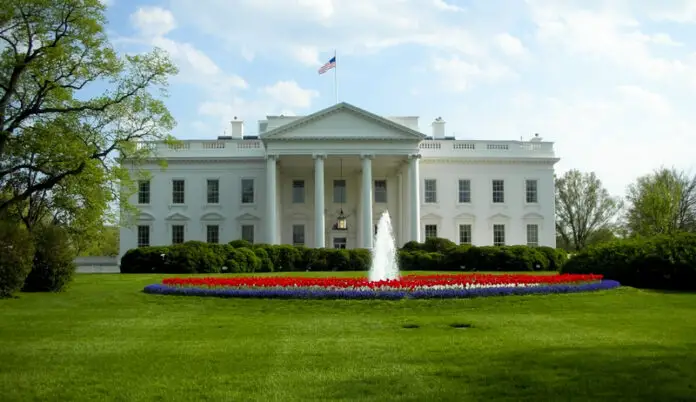President Donald Trump faced criticism on Wednesday, July 9, 2025, following a comment to Liberian President Joseph Boakai concerning his proficiency in English during a White House meeting with African leaders. Trump’s remark appeared to overlook the fact that English is Liberia’s official language.
The comment occurred at a lunch in the State Dining Room, where Trump hosted leaders from five African nations: Gabon, Guinea-Bissau, Mauritania, Senegal, and Liberia. After Boakai expressed support for Trump’s policies, the U.S. president intended to offer a compliment.
Trump remarked, “Such good English, that’s beautiful. Where did you learn to speak so beautifully?” Boakai replied that he was educated in Liberia, to which Trump expressed surprise, noting that some at the table spoke English less fluently.
The exchange led to a brief silence, with Boakai responding politely. The Liberian president had traveled over 300 miles twice from his village to Monrovia to pursue education, eventually attending one of the nation’s top schools.
Liberia’s national language, English, is rooted in its history of colonization and independence. Established in 1822 by the American Colonization Society for freed American slaves and free Black Americans, Liberia’s settlers, many of whom were African American, began arriving in the 1820s. Approximately 12,000 African Americans immigrated to the region between 1820 and 1861.
Declaring independence in 1847, Liberia became Africa’s oldest modern republic with a constitution similar to that of the United States. Ten of Liberia’s 26 presidents were born in the U.S., reflecting the nations’ historical ties. The capital, Monrovia, was named after President James Monroe, who supported the colonization effort.
Trump’s comments drew swift reactions from political figures and online observers. Texas Representative Jasmine Crockett criticized the remarks as ignorant, pointing out that questioning Liberia’s president about his English skills highlighted a misunderstanding. Former Representative Adam Kinzinger called the exchange ridiculous.
White House spokesperson Anna Kelly defended the comments, describing them as a sincere compliment during a significant moment for U.S.-Africa relations. Trump adviser Massad Boulos, present at the meeting, stated that the president praised Boakai’s language skills and noted that attendees valued Trump’s time.
Liberian Minister of Foreign Affairs Sara Beysolow Nyanti addressed the issue on Thursday, July 10, 2025, indicating that Liberian officials were not offended by Trump’s remarks. She explained that their linguistic heritage is influenced by American culture and that Trump acknowledged this link. Nyanti emphasized Liberia’s commitment to enhancing U.S. relations based on mutual respect and shared values.
This event reflects a pattern of Trump commenting on the English skills of international leaders and reporters. Earlier, he told an Indian journalist to speak louder during a press conference, citing difficulty understanding the accent, and had a translator interpret questions from English-speaking Indian reporters in the Oval Office.
The meeting with African leaders aimed at diplomatic objectives beyond ceremonial exchanges. Reports suggest Trump sought agreements for the five nations to accept deported migrants from the U.S., with memos requesting resettlement. A similar arrangement was previously established with Panama, and migrants were sent to South Sudan.
Trump also used the occasion to counter China’s influence in Africa as global powers vie for access to the continent’s resources. He referenced a recent peace agreement between the Democratic Republic of Congo and Rwanda, which secured U.S. rights to minerals, including coltan, tungsten, and gold from the Kivu province.
The incident underscored the complex relationship between the United States and Liberia, highlighting gaps in understanding about Africa’s linguistic and colonial history among some American officials, despite Trump’s intentions to offer praise.

